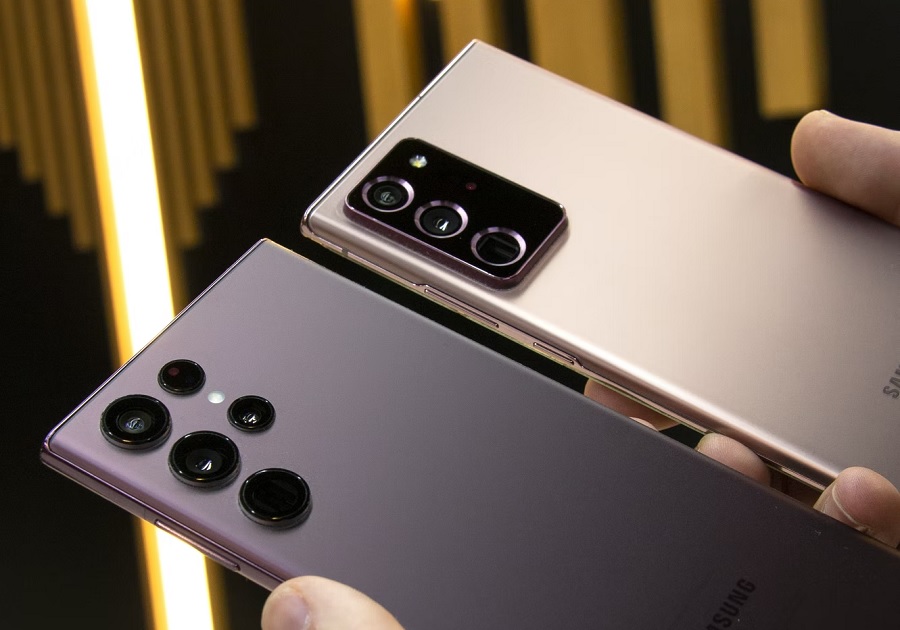Samsung might end up abandoning its own mobile chipset for the Galaxy S23 series next year. Analyst Ming-Chi Kuo reported that the South Korean tech giant is considering exclusively using the next-gen Snapdragon SoC for a good reason.
For years, Samsung shipped the latest Galaxy S series phones with different chipsets depending on the market. Some regions have been getting the version powered by the latest flagship Snapdragon mobile platform, while Samsung sells versions with the Exynos counterpart in other markets. But that could be changing in the coming year, as Kuo reported, "Qualcomm will likely be the sole processor supplier for Samsung Galaxy S23."
The analyst noted that Qualcomm already had the larger share in supplying SoCs for the Galaxy S22 lineup, accounting for 70 percent of units shipped worldwide. However, with its next premium mobile platform (like with model number SM8550) to be produced using TSMC's 4nm process, Samsung is expected to abandon the Exynos 2300 in the Galaxy S23 phones.
Kuo's report, shared in a series of Twitter posts, suggests that Samsung will still be making the Exynos 2300 using its own 4nm process. However, the analyst said "it can't compete with SM8550 in all aspects," making it likely for Samsung to exclusively use Qualcomm's SM8550 chip for the Galaxy S23 phones.
TSMC's 4nm design is expected to give Qualcomm's upcoming SoC, which could be named Snapdragon 8 Gen 2, notable upgrades in terms of performance and power efficiency compared to its predecessors Snapdragon 8 Gen 1 and Snapdragon 8+ Gen 1. It then seems like the best course for Samsung to only use Qualcomm's upcoming chip for the Galaxy S23 series. This change, should Samsung implement it, would mean that consumers in Europe, Africa, and some Asian markets will finally get a Snapdragon-powered Galaxy S device.
The analyst added that Qualcomm could then be on track to expand its market share in premium Android phones to be shipped next year, thanks to the SM8550 chip. "The economic recession affects the high-end market less, so the market share gain will significantly benefit Qualcomm and TSMC," Kuo said.
Photo by Zana Latif on Unsplash



 CK Hutchison Launches Arbitration After Panama Court Revokes Canal Port Licences
CK Hutchison Launches Arbitration After Panama Court Revokes Canal Port Licences  SpaceX Reports $8 Billion Profit as IPO Plans and Starlink Growth Fuel Valuation Buzz
SpaceX Reports $8 Billion Profit as IPO Plans and Starlink Growth Fuel Valuation Buzz  TrumpRx Website Launches to Offer Discounted Prescription Drugs for Cash-Paying Americans
TrumpRx Website Launches to Offer Discounted Prescription Drugs for Cash-Paying Americans  Instagram Outage Disrupts Thousands of U.S. Users
Instagram Outage Disrupts Thousands of U.S. Users  Elon Musk’s Empire: SpaceX, Tesla, and xAI Merger Talks Spark Investor Debate
Elon Musk’s Empire: SpaceX, Tesla, and xAI Merger Talks Spark Investor Debate  Nasdaq Proposes Fast-Track Rule to Accelerate Index Inclusion for Major New Listings
Nasdaq Proposes Fast-Track Rule to Accelerate Index Inclusion for Major New Listings  Nintendo Shares Slide After Earnings Miss Raises Switch 2 Margin Concerns
Nintendo Shares Slide After Earnings Miss Raises Switch 2 Margin Concerns  TSMC Eyes 3nm Chip Production in Japan with $17 Billion Kumamoto Investment
TSMC Eyes 3nm Chip Production in Japan with $17 Billion Kumamoto Investment  Baidu Approves $5 Billion Share Buyback and Plans First-Ever Dividend in 2026
Baidu Approves $5 Billion Share Buyback and Plans First-Ever Dividend in 2026  Global PC Makers Eye Chinese Memory Chip Suppliers Amid Ongoing Supply Crunch
Global PC Makers Eye Chinese Memory Chip Suppliers Amid Ongoing Supply Crunch  Trump Backs Nexstar–Tegna Merger Amid Shifting U.S. Media Landscape
Trump Backs Nexstar–Tegna Merger Amid Shifting U.S. Media Landscape  Nvidia CEO Jensen Huang Says AI Investment Boom Is Just Beginning as NVDA Shares Surge
Nvidia CEO Jensen Huang Says AI Investment Boom Is Just Beginning as NVDA Shares Surge  Elon Musk’s SpaceX Acquires xAI in Historic Deal Uniting Space and Artificial Intelligence
Elon Musk’s SpaceX Acquires xAI in Historic Deal Uniting Space and Artificial Intelligence  Jensen Huang Urges Taiwan Suppliers to Boost AI Chip Production Amid Surging Demand
Jensen Huang Urges Taiwan Suppliers to Boost AI Chip Production Amid Surging Demand  Nvidia Confirms Major OpenAI Investment Amid AI Funding Race
Nvidia Confirms Major OpenAI Investment Amid AI Funding Race  SoftBank Shares Slide After Arm Earnings Miss Fuels Tech Stock Sell-Off
SoftBank Shares Slide After Arm Earnings Miss Fuels Tech Stock Sell-Off  Rio Tinto Shares Hit Record High After Ending Glencore Merger Talks
Rio Tinto Shares Hit Record High After Ending Glencore Merger Talks 































